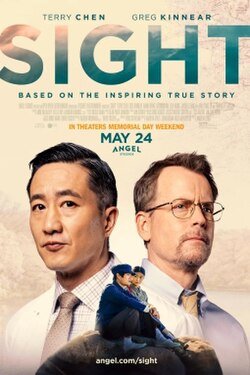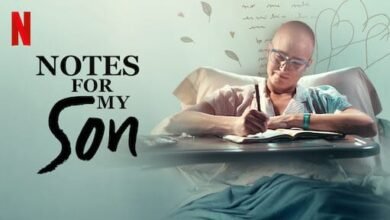Review of the Movie ‘Sight'(2024) : A Gripping Tale of Healing and Humanity

Release Date: October 5, 2023 (Heartland International Film Festival) / May 24, 2024 (US & Canada theatrical release)
Where to Watch: Angel Studios app
“Sight” is a compelling biographical drama that transcends the typical medical biopic, offering a powerful narrative about resilience, the human spirit, and the intersection of science and faith. Based on the true story of Dr. Ming Wang, a world-renowned eye surgeon, the film masterfully addresses two distinct yet deeply connected journeys: Dr. Wang’s harrowing past in Cultural Revolution China and his present-day mission to restore sight to a blind Indian orphan named Kajal.
Lessons for Individuals and Families:
- The Enduring Impact of Trauma and Resilience: Dr. Wang’s experiences during the Cultural Revolution, where he faced poverty, persecution, and separation from loved ones (including the poignant loss of Lili), vividly illustrate the lasting effects of trauma. However, the film powerfully demonstrates how these very hardships forged his incredible resilience, fueling his relentless drive for knowledge and ultimately, his compassion for others. It highlights that even in the darkest periods, the human spirit can find a path to perseverance.
- The Power of Education and Opportunity: Dr. Wang’s journey from a young man facing forced labour in China to a Harvard and MIT-educated laser eye surgeon underscores the transformative power of education and the opportunities provided by freedom. His parents’ sacrifices and his own unwavering commitment to learning are central to his eventual success.
- Empathy and the Human Connection: The film emphasizes Dr. Wang’s deep empathy for Kajal, stemming from his own past suffering. His outrage at her intentional blinding by her step mother, drives his tireless efforts, showcasing how personal experience can ignite a powerful desire to alleviate the suffering of others.
- Overcoming Adversity and Prejudice: As an immigrant to the United States, Dr. Wang faces adversity and racist attitudes. The film touches upon the struggles many immigrants encounter, from language barriers to systemic prejudice, and celebrates Dr. Wang’s ability to not only navigate but excel despite these challenges, embodying the spirit of the American Dream.
- The Evolution of Belief: “Sight” respectfully explores Dr. Wang’s personal journey with his faith. It’s portrayed as a gradual realization, sparked by the complexity of the human eye and his relentless pursuit of healing. The film suggests that faith and science are not necessarily opposing forces, but can coexist and even complement each other in driving human purpose and compassion.
Lessons for Communities and Society:
- Addressing the Exploitation of Children: Kajal’s story, though difficult to watch, shines a stark light on the horrific reality of child exploitation and intentional blinding for forced begging in some of the world’s poorest communities. While the specific statistics for intentional blinding of children are hard to quantify globally, the broader issue of child begging and exploitation remains a significant concern. For instance, UNICEF estimates that millions of children worldwide are engaged in child labour, with many forced into begging. The film serves as a powerful call to action for greater awareness and intervention to protect children.
- The Global Impact of Medical Innovation: Dr. Wang’s development of the amniotic membrane contact lens, which has helped restore sight to millions of patients globally, exemplifies the profound impact that dedicated medical research and innovation can have on human lives. The film underscores the importance of supporting scientific advancement that can bring hope to those suffering from debilitating conditions.
- The Role of Compassionate Organizations: The Christian social work group in Calcutta, Society of Underprivileged People (SOUP), played a crucial role in rescuing Kajal and tirelessly seeking help for her. This highlights the vital work of non-governmental organizations and faith-based groups in providing care, advocacy, and a lifeline to the most vulnerable members of society.
- The Legacy of Historical Trauma: Dr. Wang’s backstory in the Cultural Revolution provides a window into a period of immense social upheaval and suffering in China (1966-1976), during which an estimated 20 million high school graduates were deported to labour camps. The film reminds us that the trauma of such historical events can reverberate for generations, influencing individual lives and societal development.
- The Power of International Collaboration and Compassion: The collaboration between the Indian social work group, Dr. Wang in the US, and the compassionate nun who brought Kajal to Nashville, showcases how international cooperation and individual acts of kindness can create pathways to healing and hope across borders.
“Sight” is not just a medical triumph; it illustrates the extraordinary journey of one man whose past suffering propelled him toward a life of profound purpose and healing. It encourages viewers to look beyond the surface, to see the resilience in others, and help in their little way.





